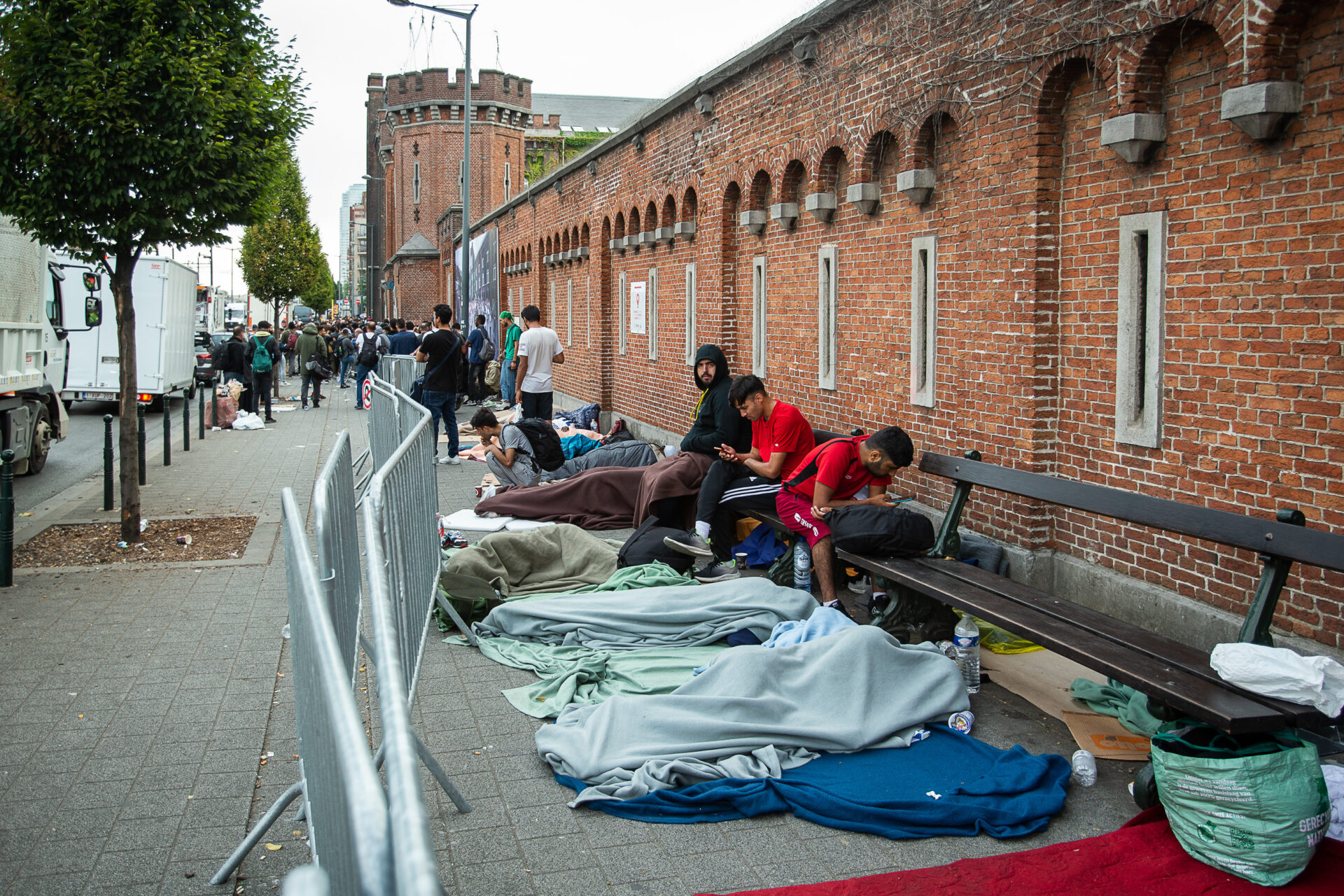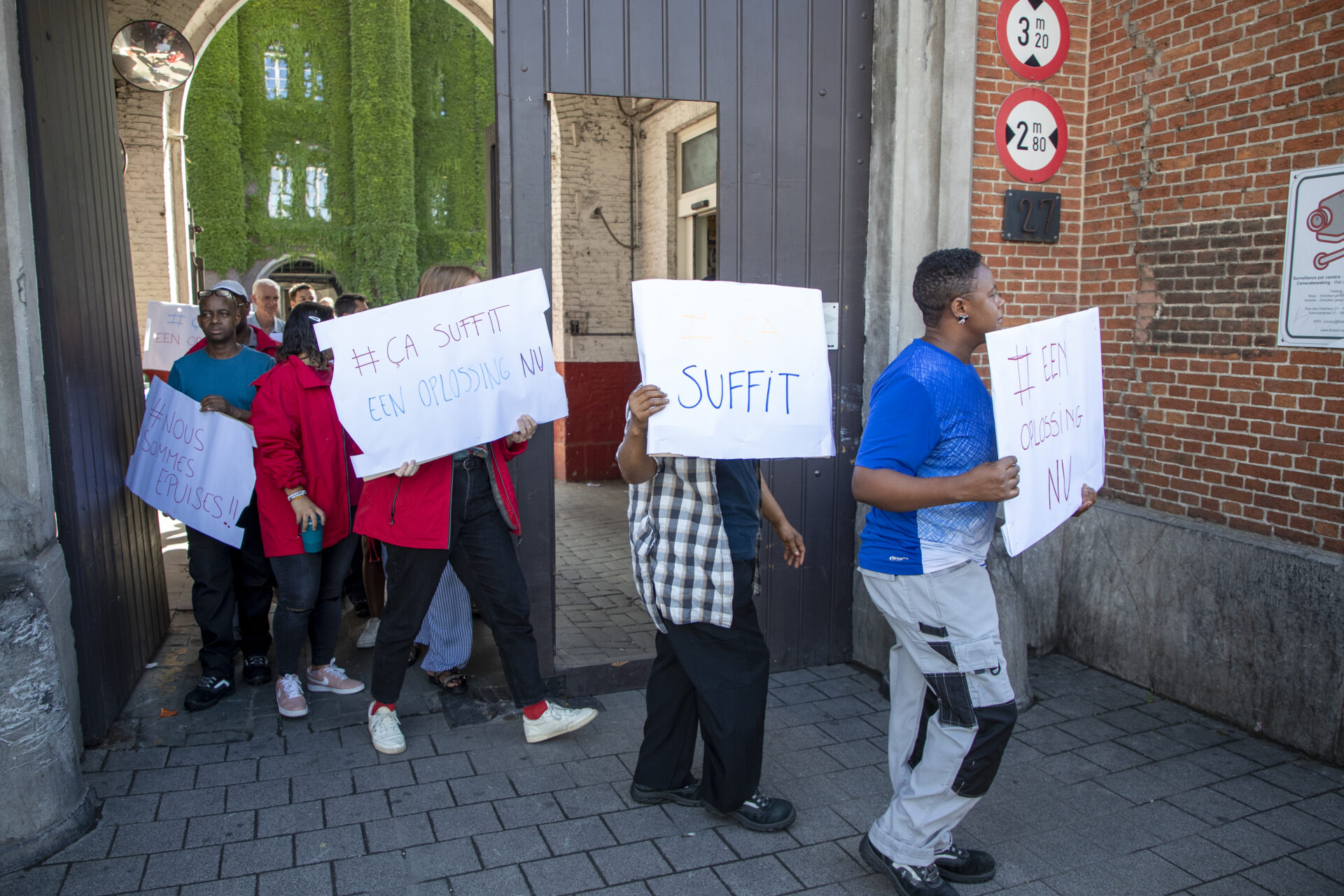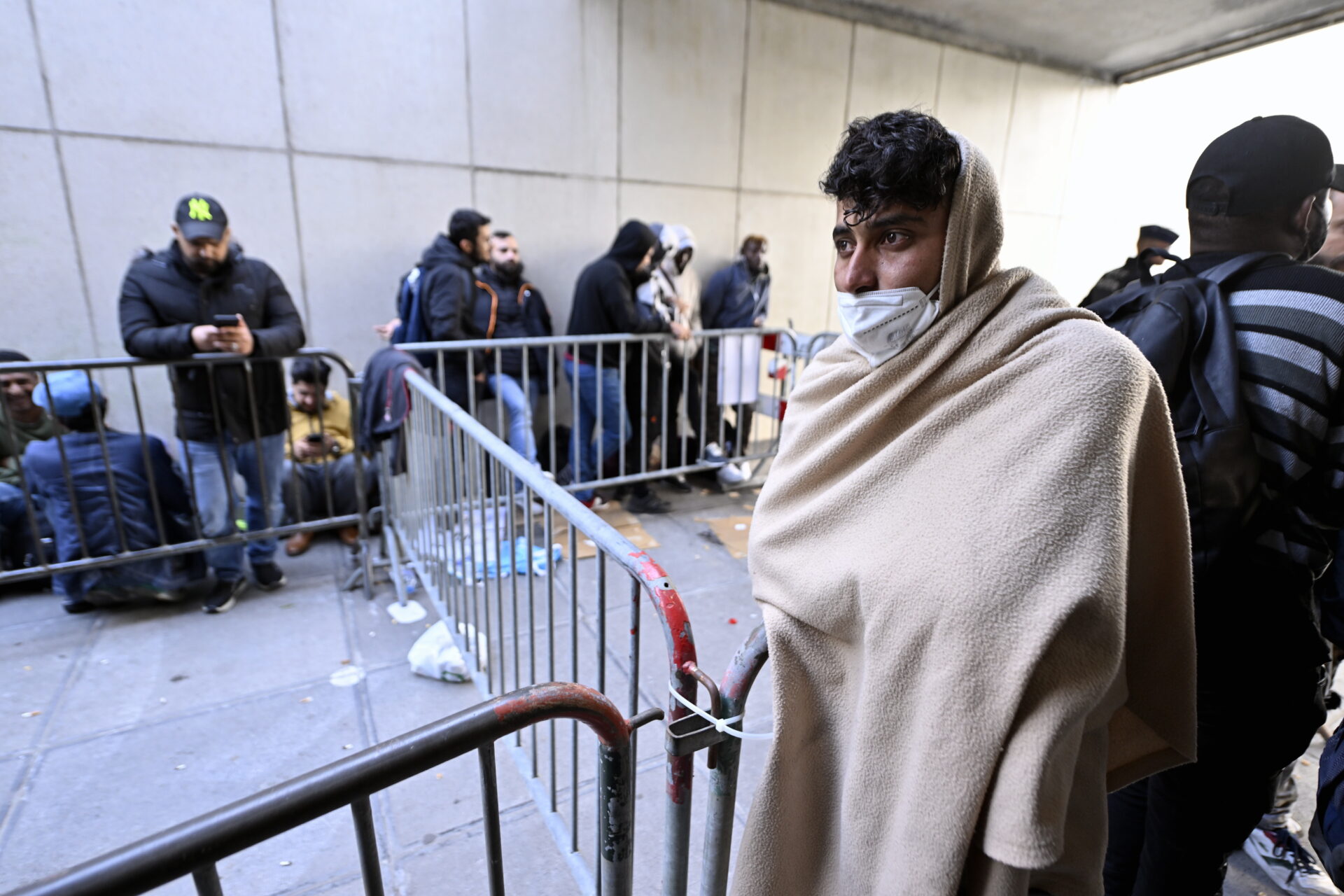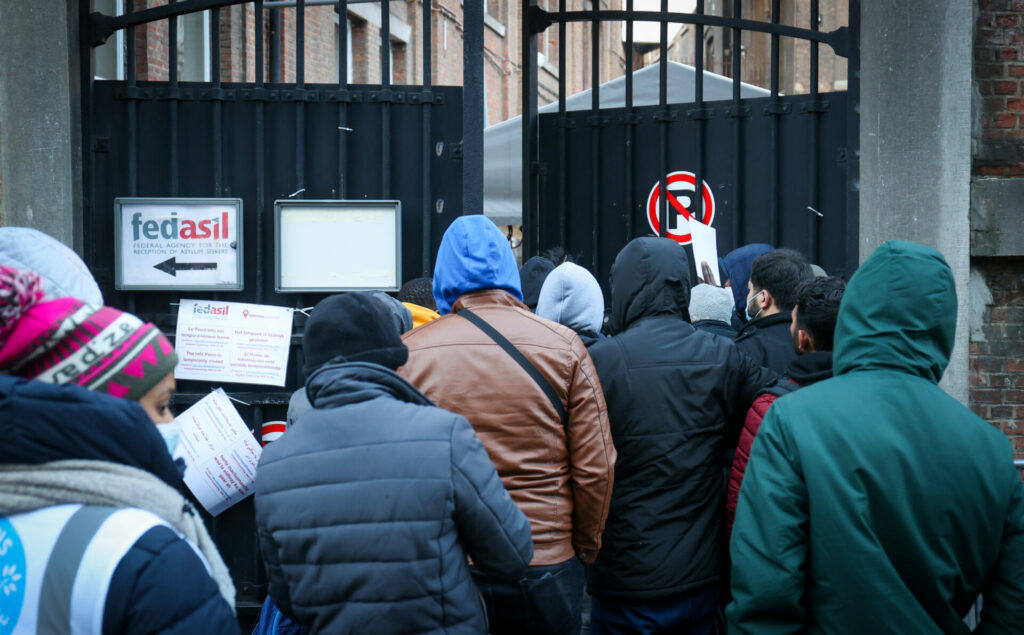With rows of asylum seekers sleeping outside reception centres, the government facing fines and Fedasil staff going on strike, it is clear that Belgium's asylum process is not working. As tensions rose to a fever pitch in recent weeks, how did we get here?
The Klein Kasteeltje reception centre for asylum seekers in Brussels has been at the heart of what is considered by many an untenable situation. Hundreds of people – especially young, single men – are not given the shelter they are legally entitled to.
"The most distressing thing is that as a single man, you can now only get a place of refuge if you demand it in court. To exercise your human rights, you actually have to go to court as standard practice now," Thomas Willekens of Vluchtelingenwerk Vlaanderen (Refugee Work Flanders) told The Brussels Times.

Dozens of asylum seekers waiting at the entrance of the Fedasil registration centre Klein Kasteeltje in Brussels, Friday 19 August. Belga/ James Arthur Gekiere
"If this were to happen with a basic right of Belgian citizens, everyone would be out on the streets... this is happening under a government that supposedly attaches great importance to respect for human rights," Willekens added.
Fedasil, Belgium's Federal Asylum agency, has faced 1,700 convictions since October last year for failing on its legal responsibility to provide people with shelter. What's more, the situation could have been avoided, Willekens says.
The beginning of the end
Last September, alarm bells started going off for Vluchtelingenwerk Vlaanderen. It saw the country was on the brink of a reception crisis, driven by a high occupancy rate in the reception centres that were incapacitated by asylum processing being suspended during the pandemic.
The system was put under greater strain when the government decided to temporarily halt sending Afghans back to their country in light of the Taliban take-over, meaning they too became stuck in this network for longer.
The presently overwhelmed situation is also largely down to the government closing centres when the number of asylum applications dropped temporarily. The Flemish refugee network called on the government to act quickly and create extra shelter places, but the response was limited, with the cracks in the system becoming plain to see now.
Not the only one
Willekens recognised that Belgium is currently experiencing a high influx of asylum applications for this time of year (around 19,000). "I am not going to deny that, and compared to other countries, it is one of the highest numbers."
Belgium is not alone in the situation it is facing. The Netherlands is facing a similar situation, resulting in Doctors Without Borders (MSF) having to provide medical and psychological care in the country for the first time in the organisation’s 50-year existence.

A protest by Fedasil employees after chaos at 'Klein Kasteeltje' last week. Credit: Belga/ Nicolas Maeterlinck
"Both countries failed to create additional places. The Netherlands panicked and wanted to do something, but at that point, the willingness of local governments to open reception places was non-existent," Willekens said.
The situation in the Netherlands differs now, as it is forcing local governments to make reception places available. This could also be done in Belgium if the government implemented the federal phase of the disaster plan in Belgium, which would see Home Affairs Minister Annelies Verlinden coordinating reception efforts, assisted by the National Crisis Centre.
Inevitable, but not ideal
While triggering the disaster plan is not optimal, Willekens said his organisation is currently supporting it out of necessity. "Things are so bad that this is unavoidable. In the Netherlands, they are succeeding in opening up a few reception places very slowly. That is something we would also like to see happen here."
The government is opposed to moving to the disaster plan, instead announcing a package of measures to tackle the crisis, which include creating more reception centres that will have 750 temporary emergency reception places.
"The measures taken by the government are ongoing. I don't know of any agency that can open locations on a whim," Sieghild Lacoere, spokesperson for Nicole de Moor, State Secretary for Asylum and Migration, told The Brussels Times.
"There are practical arrangements to be made, beds to be prepared, staff to be found, the necessary health and safety precautions and so on."

Asylum seekers wait outside the offices of the Immigration Services. Credit: Belga/ Eric Lalmand
The Dublin centre in Zaventem opened recently to receive people who are already registered in another EU country and as of Monday, the registration processes are carried out by the offices of the Immigration Department (DVZ) pending the arrival of a more definitive registration centre.
De Moor added that the government does not agree with Vluchtelingenwerk Vlaanderen's proposals, especially the call to make emergency accommodations in hotels available to avoid people ending up on the street.
In place of national emergency measures, the minister called for a new European framework. Willekens, however, pointed out that this "solution" is not in sight in the short term.
"In the short term, hundreds of people are sleeping on the streets and Belgium is violating all legal frameworks. The only way to solve this is to open more reception places," he said.
End in sight?
As to just how long the crisis could persist, Willekens is not optimistic: "Every day I ask myself the question, and I have no answer."
He disparages the lack of political will to tackle breaches of the rights of asylum seekers and observes that these take place all over the EU. This could be because "it is electorally unattractive to take measures in favour of people fleeing."
His greatest concern is the growing number of asylum seekers on the streets. This highlights the incapacity of humanitarian organisations and Fedasil to carry this burden. "It is becoming more difficult for everyone to work and live in these circumstances."

